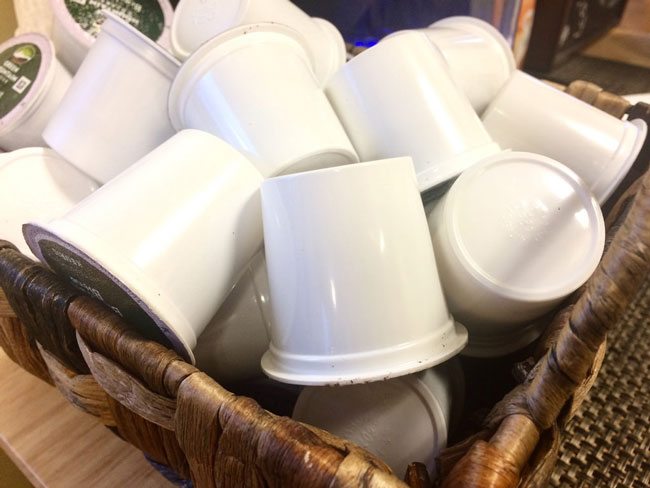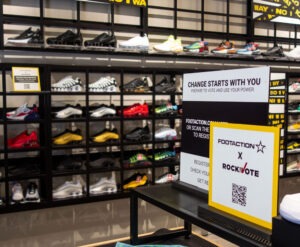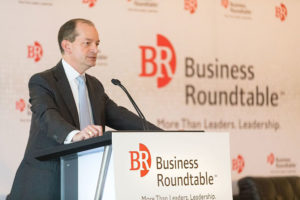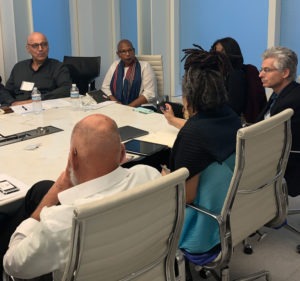
November 13th, 2017; The Atlantic
Followers of Sean Hannity took to their kitchens and backyards this week to assassinate their coffee machines, but as they say, you can never do just one thing in a complex world.
The gesture was meant to show support for conservative talk show host Sean Hannity. Earlier this week, Hannity made some repulsive comments about former judge Roy Moore and the allegations that he sexually abused several teenage girls, suggesting that perhaps the encounter was consensual. (Just to be crystal clear here, 14-year-olds cannot legally consent to sexual acts with adults. If the allegations are proven true, Moore faces prison.) Nevertheless, Hannity asked, “Do some people [make sexual assault allegations] for political reasons?”
Keurig, Realtor.com, 23 and Me, Eloquii and Nature’s Bounty all pulled their ads from Hannity’s show, much the same way that other advertisers did when allegations of sexual harassment against Bill O’Reilly became public. Hannity fans reacted with rage, claiming that Moore was being assumed guilty without due process and that all Hannity had done was give him a chance to speak. Some took their furor beyond Twitter, prompting writer Geraldine DeRuiter to ask, “Sorry, I was off Twitter for a while—it appears that people are destroying coffee machines to show their support of child molesters?”
That’s right: videos of people smashing Keurigs with golf clubs, throwing them off buildings, and generally “pull[ing] an ‘Office Space’ with my Keurig,” as one Hannity supporter put it, began to surface.
Just as donors are free to give to any cause they like, so private companies may choose where to give their business; sometimes the only way to sway them is by threatening their bottom line, as Hannity supporters clearly intended to do.
Sign up for our free newsletters
Subscribe to NPQ's newsletters to have our top stories delivered directly to your inbox.
By signing up, you agree to our privacy policy and terms of use, and to receive messages from NPQ and our partners.
Hannity was pleased by the reaction, but probably not as pleased as another, surprising stakeholder in the situation: The environmental movement.
Keurigs are widely acknowledged to be terrible for the environment. Even the inventor of Keurig, John Sylvan, once told the Atlantic, “I feel bad sometimes that I ever [invented them].” This is because, as the article points out, “In 2014, enough K-Cups were sold that if placed end-to-end, they would circle the globe 10.5 times. Almost all of them end up in landfills. They are not recyclable. Using them is extremely wasteful and irresponsible; they are a stupid way to make coffee that simply cannot be sustained.” Keurig does now make recyclable K-Cups, but they aren’t really an improvement. The only solution to the Keurig problem is to accept the minor inconvenience of making drip coffee. The scourge of endless little plastic cups is reason enough for environmental groups to hate Keurig as much or more than Hannity supporters currently do, finding themselves an unlikely ally.
As nonprofits know, it’s important to be informed about the stakeholders in your movement. When your work relies on public support, every move you make can be subject to stakeholder prejudice, and it’s important to rank priorities when lines of support get crossed.
Now, Sean Hannity is not a known supporter of environmental movements, even claiming that winter snowstorms prove that global warming is a hoax. It might even be unwise for environmental groups to acknowledge the inadvertent support they’re getting, given the possible backlash.
But sometimes, you have to take the little victories where you find them. Even if Hannity supporters can’t be convinced that accusations of sexual harassment of minors should disqualify someone from public office, at least they’re doing their part for the planet.—Erin Rubin













